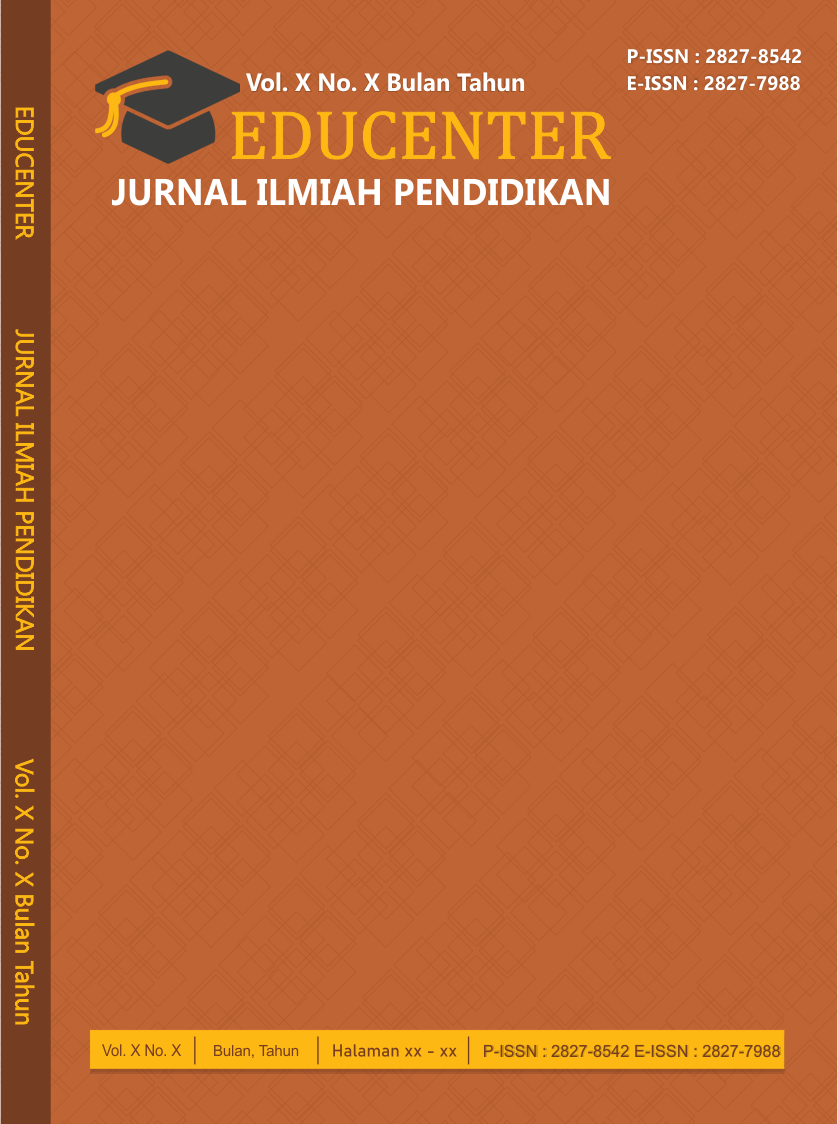RME-based e-worksheets with Liveworksheet: A tool to enhance mathematical conjecturing abilities in statistics learning
Main Article Content
Abstract
This research is motivated by the low ability of students to make mathematical conjectures in statistics learning, especially on the topic of measures of central tendency, which is caused by the lack of interactivity and student involvement in mathematics learning. To overcome this, the study aims to develop and analyze the effectiveness of Electronic Student Worksheets (E-LKPD) based on Realistic Mathematics Education (RME) with Liveworksheet as an interactive learning medium. This study uses a research and development method (R&D) with a quasi-experimental design. The subjects of the study were seventh-grade junior high school students who participated in statistics learning. Data were collected through a mathematical conjecture ability test, observation of student engagement, and a questionnaire of student responses to the learning medium. The results showed that E-LKPD based on RME with Liveworksheet significantly improved students’ mathematical conjecture abilities, as evidenced by the increase in average scores before and after the use of the media. In addition, students showed high enthusiasm and active involvement during the learning process. In conclusion, the use of E-LKPD based on RME with Liveworksheet is effective as a tool to improve mathematical conjecture abilities in statistics learning, while increasing student motivation and participation.
Article Details
Section

This work is licensed under a Creative Commons Attribution-NonCommercial 4.0 International License.
How to Cite
References
Afifah, S., Mudzakir, A., & Nandiyanto, A. B. D. (2022). How to calculate paired sample t-test using SPSS software: From step-by-step processing for users to the practical examples in the analysis of the effect of application anti-fire bamboo teaching materials on student learning outcomes. Indonesian Journal of Teaching in Science, 2(1), 81–92.
Afriani, N. R. (2022). Effectiveness of the problem based learning model on critical thinking ability about science subject for fifth grade elementary school students. EduHumaniora| J. Pendidik. Dasar Kampus Cibiru, 14(1), 46–58. https://doi.org/10.17509/eh.v14i1.36791
Amir, M. F., Hasanah, F. N., & Musthofa, H. (2018). Interactive multimedia based mathematics problem solving to develop students’ reasoning. Int. J. Eng. Technol, 7(2.14), 272–276.
Choirudin, C., Lubis, M., & Masuwd, M. A. (2025). Enhancing High School Students’ Mathematical Problem-Solving Skills through Interactive Media: A Classroom Action Research Approach. Journal of Teaching and Learning Mathematics, 2(2), 104–121. https://doi.org/10.22219/jtlm.v2i2.31685
Febrina, V., & Setiawan, D. (2024). Analysis of the use of learning media on the learning interest of learning science students and environmental themes. Jurnal Penelitian Pendidikan IPA, 10(8), 5702–5709. https://doi.org/10.29303/jppipa.v10i8.7497
Fiani, A. S. O., Wibowo, N. A., Andoyo, Y. A. A., & Rofisian, N. (2024). Penerapan Media Pembelajaran Interaktif Berbasis Multimedia untuk Meningkatkan Pemahaman Konsep Matematika Peserta Didik Sekolah Dasar. Jurnal Pendidikan Sosial Dan Konseling, 2(3), 999–1003.
Gustiani, S. (2019). Research and development (R&D) method as a model design in educational research and its alternatives. Holistics (Hospitality and Linguistics): Jurnal Ilmiah Bahasa Inggris, 11(2).
Meilina, S., & Andriani, A. (2023). Implementation of TPACK-based Liveworksheet Approach on Students Learning Motivation and Critical Thinking in Science Learning at Elementary School. Proceedings of the 2nd International Conference on Social Sciences, ICONESS, 22–23. https://doi.org/10.4108/eai.22-7-2023.2335408
Mumu, J., & Tanujaya, B. (2018). Desain Pembelajaran Pateri Operasi Pada Himpunan Menggunakan Permainan “Lemon Nipis.” Journal of Honai Math, 1(1), 14–23.
Nurjanah, P., & Angraini, L. M. (2024). Analysis of Students’ Mathematical Problem-Solving in Translating Story Problems into Mathematical Models. Progressive of Cognitive and Ability, 3(4), 230–250. https://doi.org/10.56855/jpr.v3i4.1105
Öksüz, C., Eser, M., & Genç, G. (2022). The review of the effects of realistic mathematics education on students’ academic achievement in Turkey: A meta-analysis study. International Journal of Contemporary Educational Research, 9(4), 662–677. https://doi.org/10.33200/ijcer.1053578
Prihandono, T., Supriyono, A., Meilina, I. L., & Ernasari, E. (2023). Penerapan E-LKPD interaktif berbasis problem based learning berbantuan liveworksheets untuk meningkatkan kemampuan berpikir kritis dan hasil belajar fisika. Jurnal Pembelajaran Fisika, 12(3), 114–126. https://doi.org/10.19184/jpf.v12i3.43462
Putri, M. O., & Sukmaningthias, N. (2025). Analysis of Student’s Mathematical Communication Ability Using Digital LKPD with RME (Realistic Mathematics Education) Approach. JTMT: Journal Tadris Matematika, 6(1), 22–30. https://doi.org/10.47435/jtmt.v6i1.3821
Rabbani, S., & Herman, T. (2017). Increasing Formulate and Test Conjecture Math Competence and Self Confidence in Using the Discovery Learning Teaching Math. PrimaryEdu - Journal of Primary Education, 1(1), 119. https://doi.org/10.22460/pej.v1i1.488
Rizki, N., Baiduri, B., & Inganah, S. (2023). Analysis of Critical Thinking Ability in Liveworkheet Assisted Cooperative Learning Settings. AKSIOMA: Jurnal Program Studi Pendidikan Matematika, 12(1), 1474–1483.
Sutarni, S., Sutama, S., Prayitno, H. J., Sutopo, A., & Laksmiwati, P. A. (2024). The development of realistic mathematics education-based student worksheets to enhance higher-order thinking skills and mathematical ability. Infinity Journal, 13(2), 285–300. https://doi.org/10.22460/infinity.v13i2.p285-300
Thorndahl, K. L., & Stentoft, D. (2020). Thinking critically about critical thinking and problem-based learning in higher education: A scoping review. Interdisciplinary Journal of Problem-Based Learning, 14(1). https://doi.org/10.14434/ijpbl.v14i1.28773
Vilianti, Y., Pratama, F., & Mampouw, H. (2018). Description of the ability of social arithedical stories by study problems by students VIII SMP reviewed from the polya stage. International Journal of Active Learning, 3(1), 23–32.
Yohannes, A., & Chen, H.-L. (2024). The effect of flipped realistic mathematics education on students’ achievement, mathematics self-efficacy and critical thinking tendency. Education and Information Technologies, 29(13), 16177–16203.
Yu, L., & Zin, Z. M. (2023). The critical thinking-oriented adaptations of problem-based learning models: a systematic review. Frontiers in Education, 8, 1139987. https://doi.org/10.3389/feduc.2023.1139987

